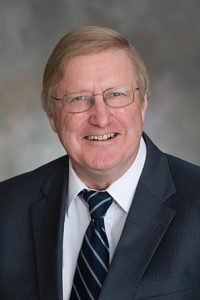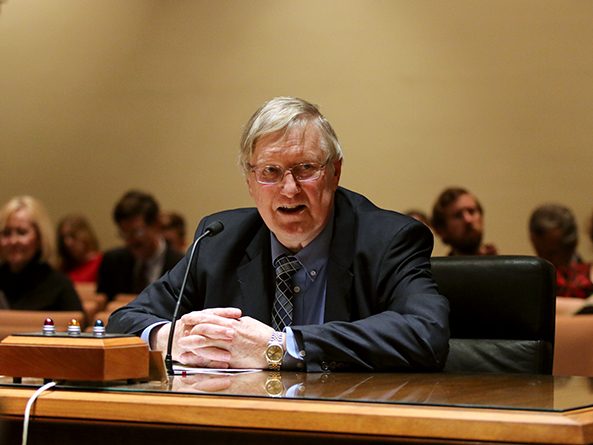Elimination of state tax incentive programs discussed
The Revenue Committee heard testimony Feb. 27 on a bill that would move up the end dates of several of the state’s current business tax incentive programs.
LB1023, introduced by Columbus Sen. Paul Schumacher, would expire on Dec. 31, 2018, the Nebraska Advantage Act, the New Markets Job Growth Investment Act, the Nebraska Advantage Rural Development Act, the Nebraska Job Creation and Mainstreet Revitalization Act, the Community Development Assistance Act and the Beginning Farmer Tax Credit Act.
Additionally, no credits could be claimed under the Nebraska Advantage Research and Development Act after Dec. 31, 2018. No applications for the Nebraska Advantage Microenterprise Tax Credit Act could be approved for calendar years beginning after Dec. 31, 2018, and no credits could be allocated for the Angel Investment Act for calendar years beginning after that date.
The programs currently are set to end Dec. 31, 2022, except for the Nebraska Advantage Act, which is set to end Dec. 31, 2020.
Schumacher said state spending on the tax incentive programs has limited its ability to respond to financial crises. More than $362 million in credits had been used as of 2016, he said, and more of them are being granted each year. Performance audit studies of the tax incentive programs have found that they have worked in some cases, Schumacher added, but there is no clear evidence that they are worth what the state is spending on them.
“This is an expensive item,” he said, “and it’s pretty imperative that we pull the plug on it so that we can begin to recover our financial ability to maybe institute a new one or otherwise respond with increased funding for things that might be better investments.”
The state Department of Revenue estimates that LB1023 would increase state revenue by approximately $19.5 million in fiscal year 2019-20 and an additional $22 million in FY2020-21.
Renee Fry, executive director of the OpenSky Policy Institute, testified in support of the bill. She said that a high-quality, educated workforce is a more important factor than tax incentives when businesses are considering where to locate. She also questioned whether the credits are incentivizing the creation of new businesses or if they only reward behavior that would have happened anyway.
“I think it’s important for us to think about how we should be using these dollars so that they’re really maximizing our taxpayer return on investment,” Fry said.
John Hansen, president of the Nebraska Farmers Union, also testified in support, saying that businesses in rural Nebraska have not benefited much from the tax incentive programs. With the state facing a budget deficit and a struggling agricultural economy, now is a good time to move up the programs’ end dates and find a more cost-effective way to stimulate business growth, he said.
“The sooner that the sun sets on those things that are ineffective and cost more money than we can afford, the sooner the sun rises on new and better ideas.”
Tim Quigley, of real estate developer Cohen-Esrey, testified in opposition to the bill. He said that his firm is using both state and federal historic building tax credits to pay for an affordable housing project in Hastings. He said the $8.6 million project received $1 million in tax credits under the Nebraska Job Creation and Mainstreet Revitalization Act.
“Without having the state historic tax credit,” he said, “we would not have done this project.”
Also speaking in opposition was Michael Sotham of Mainstreet Beatrice, an organization working to revitalize that city’s downtown. He said the historic building tax credit encourages small businesses and developers to renovate existing buildings rather than build new ones on the city’s outskirts, which would require the city to spend money building new infrastructure.
The projects will draw more people to Beatrice by improving quality of life, Sotham added, which in turn will spur more economic development.
“If we cannot attract people to our communities,” he said, “how are we going to be able to go out and get these bigger businesses?”
The committee took no immediate action on the bill.


